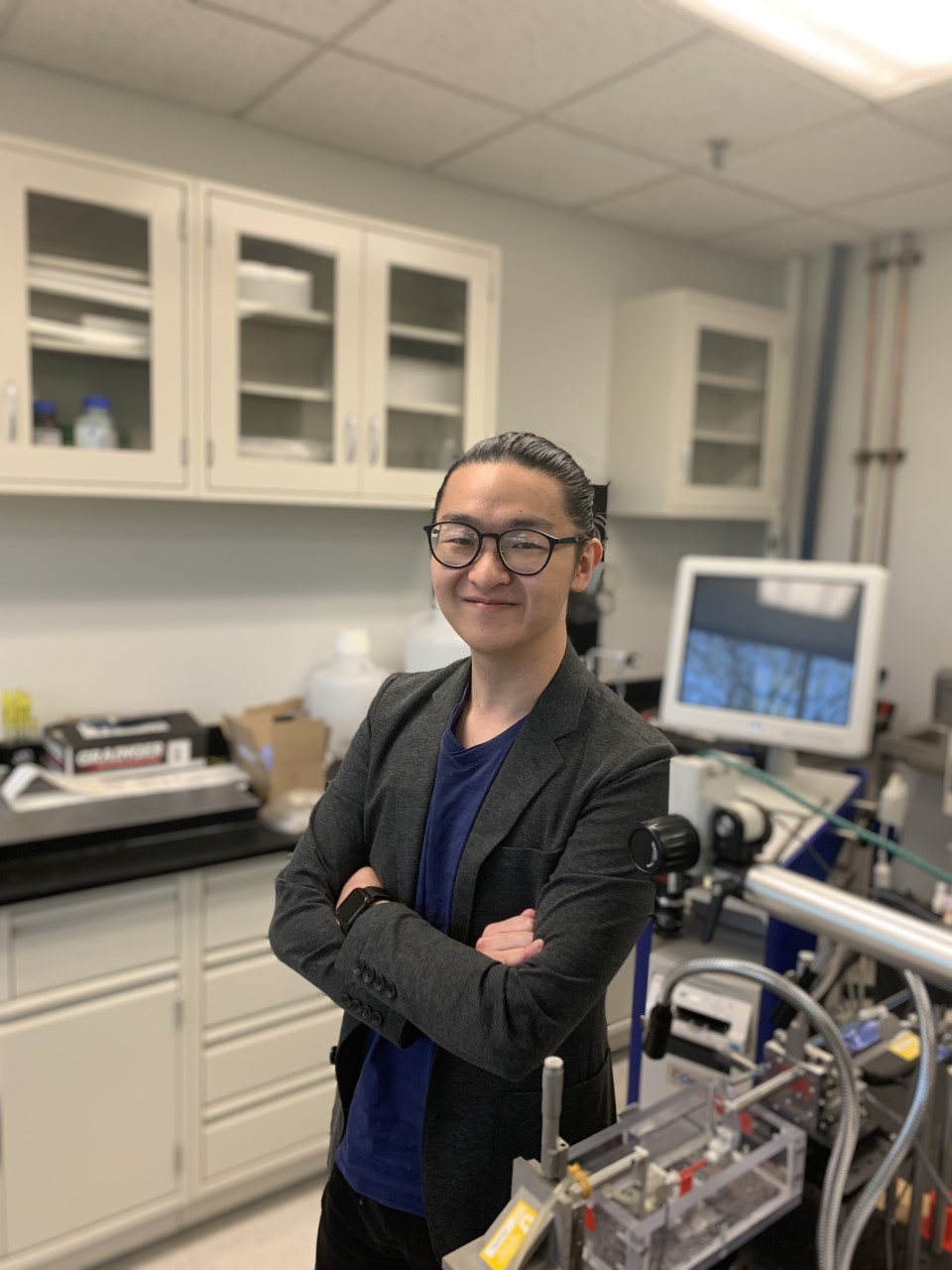Congratulations to David Jiang for receiving the 2022-2023 University Teaching Assistantship Award!
The purpose of the University Teaching Assistantship program is to improve graduate education programs and training at the University of Utah in the service of undergraduate education through the creative use of graduate teaching assistants.
My name is David Jiang and I am currently a third year PhD student in Biomedical Engineering. I previously received my BS/MS dual-degree in BME from the University of Utah in 2020.
The UTA award that I have been selected for will have the primary objective of developing, integrating, and teaching FEBio (Computational Modeling and Simulation) learning modules in BME 4250: Biomechanics I. This UTA award will be funded through the 2022-2023 academic year to improve the BME 4250: Biomechanics I course and have broad impact within the undergraduate curriculum in the Department of Biomedical Engineering. My motivation to improve undergraduate education stems from the high regard I have of my undergraduate experience and passion for my research in biomechanics. As an alumnus of the BME undergraduate program, many of my peers were not introduced to computational modeling or the use of modeling software platforms. I believe many of my peers would have enjoyed learning and applying these tools and found them valuable in solving complex problems. To compensate for this missed opportunity, the learning modules in my UTA proposal will seek to educate the next generation of biomedical engineers.
Throughout the course of my academic training, I have been conducting novel research in the Cardiovascular Pathomechanics Laboratory under the supervision of Dr. Lucas Timmins. My research seeks to establish experimental and computational approaches to improve the diagnosis, prognosis, and treatment of cardiovascular disease. However, given the complexity of my research, translating data into meaningful results is often a difficult but extremely important task. Ultimately, scientists and researchers need to translate their findings into real-world applications and address the “so what?” factor. That is, address how my research impacts and contributes to advance society. Therefore, teaching and explaining advanced topics into something that is easy-to-understand is an essential skill. Particularly as someone who will one day hold a doctorate degree, I have a responsibility as an expert in my field to educate others. My motivation for teaching strengthened during the COVID-19 pandemic. I never knew how much distrust the public had toward the scientific community and its experts. Notwithstanding the role that the coronavirus disease has had on our social and political climate, rapid changes in technology, which touches virtually all areas of our life, have created a number of challenges for Congress. Therefore, my long-term goals are to leverage my scientific knowledge and experiences from my research training into federal policymaking in order to shape the future of health policy.
Click here to learn more about the University Teaching Assistantship
